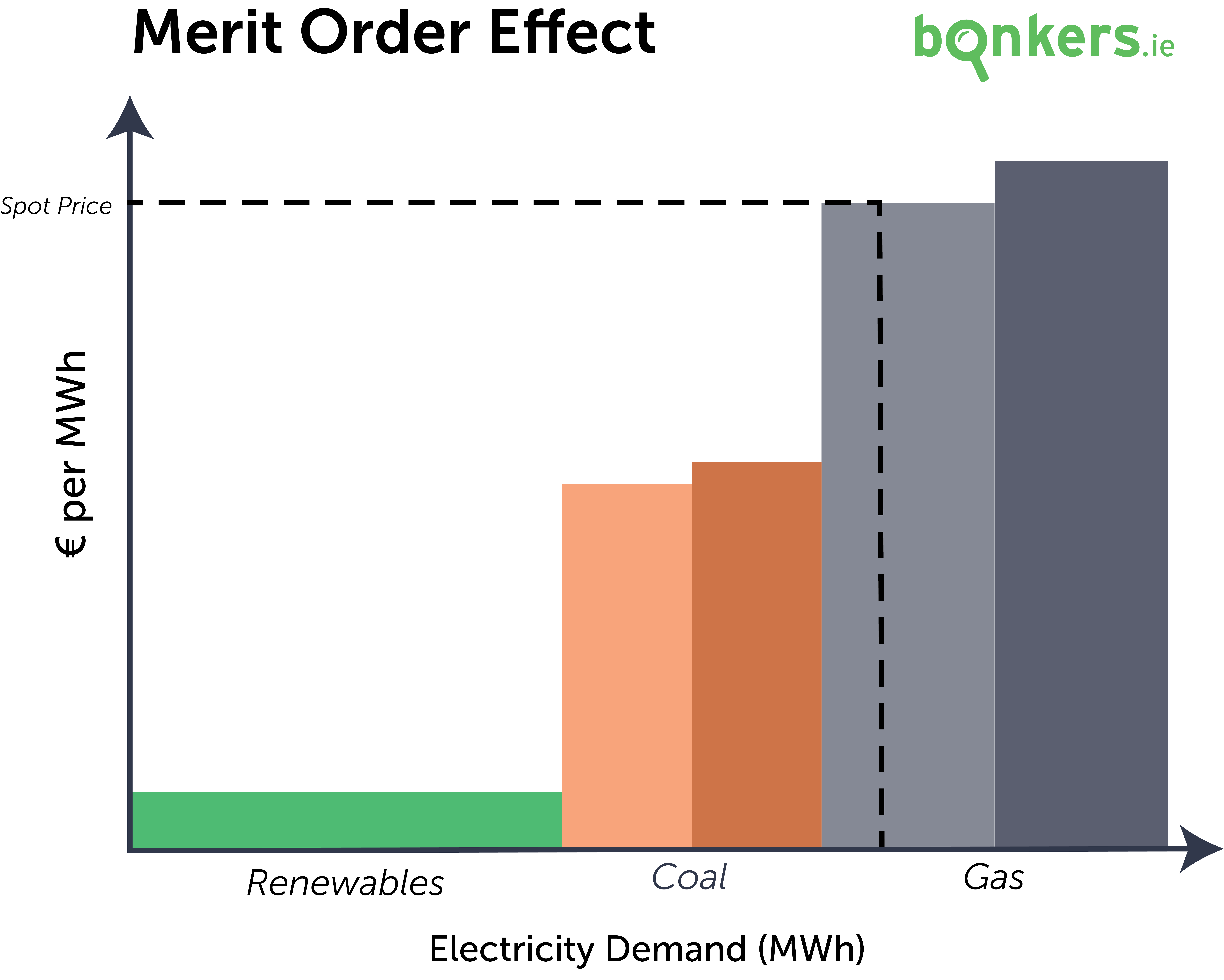.png)
Proposed last week, the new reforms will aim to avoid price volatility and promote renewable energy. But are the measures targeted enough, and will they reduce our energy bills?
The European Commission (EC) revealed on 14 March that it was proposing a new reform of the EU single energy market.
The proposal aims to put more emphasis on long and short-term price guarantees between energy producers and energy providers (including governments), while keeping the existing short-term energy market.
However, the reforms stopped short of extending windfall taxes for energy companies and also didn’t decouple renewable energy prices from gas and other forms of energy (the merit order system). We will explain this in more detail later on.
The reforms are a response from the EC to cut down on the effect that volatile prices have on consumer's energy bills, while also hoping to make investment in renewable energy more attractive for governments and investors alike.
What are the reasons for the EU’s energy reform?
We all know the impact that Russia’s invasion of Ukraine has had on our energy supply, consumption and pricing.
Starting from February 2022, the supply of cheap natural gas from Russia (oftentimes with pipes that run through Ukraine), has been severely impacted, which in turn has led to much higher wholesale prices.
Although natural gas doesn’t provide all of the EU’s needs, the merit order system means that higher gas prices also drive up the prices of other types of energy, like wind, hydro and nuclear.
What is the merit order system?
The EU’s so-called merit order system is a process whereby the energy that has the lowest marginal cost (the cost to produce a MWh of energy, for example), like renewables, nuclear or waste, is used first, while more expensive energy is called upon only if the lower-cost energy isn’t sufficient to meet demand.
So, there’s a certain amount of demand that renewable energy can supply on a given day, and once this supply is used up, it moves along the line to the next cheapest energy source, such as nuclear power.
However, renewable and nuclear can’t meet all of the demand, so if the demand moves further along, the price increases. Each phase of consumption is ordered by using the cheapest resource first - so after nuclear power it might move on to coal, and then if the coal isn’t enough to satisfy demand it would move on to natural gas. This is to ensure that the most efficient form of energy is used first.
What is the spot price?
It’s important to note that whatever point along the price graph that demand and supply converge is the final price for all of the energy supplied. This is called the ‘spot price’.
You can see from the graph below that as demand has moved along the supply curve, so too has its price, with the gas production increasing the overall price for other energy types.
So, even though renewable energy costs very little to produce, it still receives the same price on the day as the most expensive type of energy generation.
This is done to ensure that investment in renewable energy is rewarded and that investors and owners of renewable infrastructure have security with their investments going forward.
It also promotes further investment in renewable energy, given that renewable producers are paid above the marginal cost of generating this electricity. This covers their fixed costs (such as installation of the infrastructure).
How has the merit order system changed?
The merit order system was a working system when gas prices were relatively stable. Although renewable generators were paid above their marginal costs, it was still enough to cover fixed costs, help expand infrastructure and bring overall energy prices down.
However, since the massive increase in gas prices, alongside rises in coal and oil prices, the system has come into scrutiny.
Because this ‘spot price’ is tied so closely to the highest costing energy generator, the price that renewable generators receive is many multiples higher than its marginal costs, far outweighing the original need for investment security.
So, even though renewable energy costs very little to produce, the price of it still increases in line with gas prices.
What is the EU’s new energy reform?
The EC’s new energy reform goes someway to arranging fixed contracts for energy prices, but stops short of an overhaul of the merit order system.
Although EC president Ursula von der Leyen said in the Summer of 2022 that there would be “a deep and comprehensive reform of the electricity market”, its current iteration is more of a compromise between two camps.
Despite the high costs that the merit order system imposes on consumers, it will not be changed during these reforms.
Rather, the EU will be keeping this system but looking to secure more long-term price guarantees between generators and utility providers, most often national governments.
It will be doing this through the use of contracts for difference (CfD) for shorter-term guarantees and power purchase agreements (PPA) for longer-term contracts.
A PPA... is a private agreement, usually up to 15 years in length, between a generator and a consumer regarding a fixed price for electricity supply. This consumer is usually a utility company or government, and the long-length of the contract gives stability to the supplier as well as a price guarantee to the consumer. Under the new reforms proposed by the EU, only renewable energy generators would be able to benefit from these agreements, and would most likely be state guaranteed.
A CfD... is a shorter contract than a PPA. It works as an agreement between a generator and a consumer and a fixed price for energy, with a minimum and maximum level. If this falls below the market rate then the generator receives the difference from the government - if the price is above the market rate, then the supplier pays the government to make sure that prices remain stable in the long run.
How are these new energy reforms going to impact bills?
As the EU didn’t propose to decouple gas from other forms of energy (reforming the merit order system), the impact on consumer’s energy bills will be minimal. These latest reforms were a move to decrease volatility, not so much reduce household costs.
Countries with a higher share of renewable or nuclear energy, such as Spain and France respectively, were vocal about wanting this decoupling, while countries with a higher proportion of natural gas usage, like Germany, the Netherlands and the Baltic States, were more reluctant for any big changes.
As such, these latest proposed reforms are a compromise between the two, attempting to introduce more long-term contracts into the energy mix while also keeping the existing short-term energy market, the merit order system.
In response to the proposed reforms, the Centre for Economic Policy Research (CEPR) said that while some of the measures would help curb price volatility, it remains “sceptical as to whether the European Commission’s proposal will do much” to lower consumers’ energy bills.
The planned reforms still have to be passed and approved by the European Parliament - so keep your eyes peeled, as concessions may be made to get a deal over the line.
Learn more about the energy market
There’s been a lot of flux in energy markets over the past year, and it can be hard to get your head around everything.
Thankfully we have a number of energy explainers to help you fully understand why your bills have gone up so much.
- Read here to learn more about why our household energy bills aren’t falling.
- Learn more about the future of renewable energy in Ireland.
- To better understand why electricity is so expensive in Ireland, read on here.
Keep on top of our latest energy related articles here.
Switch to a cheaper energy deal today
It’s quick and easy to compare deals and switch energy providers on bonkers.ie. Head over to our free energy comparison service to compare the best deals across all energy suppliers nationwide in just a few clicks!
If you’re seeking advice when it comes to switching supplier, make sure you check out our energy Quickstart Guide here. Our guide will equip you with all you need to know to make the switch.
Don’t forget you can also get the best broadband deals, insurance policies, banking products and mortgage rates here on bonkers.ie.
Get in touch
What do you think of the proposed energy reforms? Let us know! We're on Facebook, Twitter and Instagram.



.jpg)
.jpg)
.jpg)